Premier League Stadiums & Stats
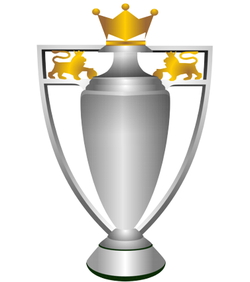
The English Premier League derives from the oldest professional football league in the world. The consequence of this is that there is a huge variety of football stadiums across the country.
Some grounds have existed for over 125 years whereas others are brand new modern super stadia designed to host everything from football matches to rock concerts.
The Premier League and its clubs remain the richest league in the world and this now reflects on the world class stadiums in which they play.
Top English league football grounds have come a long way from the dilapidated stadia of the 1980’s and now boast some of the best features and hospitality in the world. From away fans to visitors, on this page and in our guides you will find all of the stats and information you will need.
Stadium Stats
| Stadium | Year Opened | Capacity | Ave Attendance | Record Attendance | Record Attendance Match |
|---|---|---|---|---|---|
|
Anfield
Liverpool FC |
1884 | 61015 | 55809 | 61905 | Liverpool v Wolves (1952) |
|
Community Stadium
Brentford |
2020 | 17250 | 17082 | 17163 | Brentford vs Liverpool (02/01/2023) |
|
Craven Cottage
Fulham |
1896 | 25700 | 24301 | 49335 | Fulham v Milwall Dockers (1938) |
|
Falmer Stadium
Brighton & Hove Albion |
2011 | 31876 | 31543 | 31752 | Brighton v Liverpool (2023) |
|
Goodison Park
Everton FC |
1892 | 39572 | 39058 | 78299 | Everton v Liverpool (1948) |
|
King Power Stadium
Leicester City FC |
2002 | 32261 | 31238 | 32242 | Leicester v Sunderland (2015) |
|
London Stadium
West Ham United |
2011 | 68013 | 62440 | 62478 | West Ham vs Leeds (21/05/2023) |
|
Molineux
Wolverhampton Wanderers |
1889 | 31750 | 31307 | 61315 | Wolves v Liverpool (1939) |
|
Old Trafford
Manchester United FC |
1910 | 74310 | 73531 | 76962 | Wolves vs Grimsby Town (1939) |
|
Portman Road
Ipswich Town |
1884 | 29673 | 28845 | 38010 | Ipswich v Leeds (1975) |
|
Selhurst Park
Crystal Palace FC |
1924 | 25486 | 24881 | 51801 | Crystal Palace v Burnley (1979) |
|
St James' Park
Newcastle United FC |
1892 | 52350 | 52153 | 68386 | Newcastle v Chelsea (1930) |
|
St Mary’s
Southampton FC |
2001 | 32384 | 28642 | 32363 | Southampton v Coventry (2012) |
|
Stamford Bridge
Chelsea FC |
1877 | 40341 | 39576 | 82905 | Cheslea v Arsenal (1935) |
|
The City Ground
Nottingham Forest |
1898 | 30404 | 29386 | 49946 | Notts Forest v Man United (1967) |
|
The Emirates
Arsenal FC |
2006 | 60704 | 60236 | 60383 | Arsenal v Wolves (November 2019) |
|
The Etihad
Manchester City FC |
2003 | 55000 | 53249 | 55097 | Manchester City vs Manchester United (03/03/2024) |
|
Tottenham Hotspur Stadium
Tottenham Hotspur |
2019 | 62850 | 61459 | 62027 | Tottenham v Arsenal (May 2022) |
|
Villa Park
Aston Villa FC |
1897 | 42640 | 41921 | 76588 | Aston Villa v Derby County (1946) |
|
Vitality Stadium
AFC Bournemouth |
1910 | 11307 | 11098 | 28799 | Man U v Bournemouth (1957) |
Team Stats
| Team | Year Founded | Nickname | Team Owner |
|---|---|---|---|
| AFC Bournemouth | 1890 | The Cherries | Turquoise Bidco Limited / Black Knight Football |
| Arsenal | 1886 | The Gunners | Kroenke Sports & Entertainment |
| Aston Villa | 1874 | The Villans, The Villa, Villa | Nassef Sawiris, Wes Edens |
| Brentford | 1889 | The Bees, The Reds | Matthew Benham |
| Brighton & Hove Albion | 1901 | The Seagulls, The Albion | Tony Bloom |
| Chelsea | 1905 | The Blues, The Pensioners | BlueCo |
| Crystal Palace | 1905 | The Eagles, The Glaziers | Steve Parish, Joshua Harris, David S. Blitzer, Jeremy Hosking, Martin Long, Stephen Browett |
| Everton | 1878 | The Blues, The Toffees, The People's Club | Farhad Moshiri |
| Fulham | 1879 | Cottagers, Whites, Black and White army | Shahid Khan |
| Ipswich Town | 1878 | Blues, Tractor Boys, "Pride of East Anglia" | Gamechanger 20 Ltd |
| Leicester City | 1884 | The Foxes | King Power International |
| Liverpool | 1892 | The Reds | Fenway Sports Group |
| Manchester City | 1880 | The Citizens, City, The Sky Blues | City Football Group |
| Manchester United | 1902 | The Red Devils | Manchester United plc |
| Newcastle United | 1892 | The Magpies, Geordies | PIF, RB Sports and Media, PCP Capital |
| Nottingham Forest | 1865 | Forest | Evangelos Marinakis |
| Southampton | 1885 | The Saints | Sport Republic |
| West Ham United | 1895 | The Irons, The Hammers, The Academy Of Football | David Sullivan & David Gold |
| Wolverhampton Wanderers | 1877 | Wolves, The Wanderers | Fosun International |
Ticket Prices
| Stadium | Season Ticket Price (Adult) | Season Ticket Price (Conc) | Season Ticket Price (Junior) | Match Ticket Price (Adult) | Match Ticket Price (Conc) |
|---|---|---|---|---|---|
| AFC Bournemouth | £397 - £1093 | £391 - £874 | £81 - £379 | £28 - £53 | £18 - £34 |
| Arsenal | £1073 - £2050.50 | £461.50 - £461.50 | £536.50 - £1025.25 | £30.30 - £141.00 | £22.73 - £55.73 |
| Aston Villa | £640 - £944 | £480 - £708 | £164 - £472 | £40.50 - £68 | £26.50 - £68 |
| Brentford | £495 - £815 | £375 - £640 | £135 - £135 | £40 - £65 | £30 - £55 |
| Brighton & Hove Albion | £595 - £860 | £405 - £590 | £160 - £410 | £40 - £72 | £23 - £72 |
| Chelsea | £645 - £1015 | £305 - £475 | £305 - £475 | £30 - £80 | £23.50 - £28.50 |
| Crystal Palace | £545 - £705 | £370 - £280 | £250 - £355 | £40 - £58 | £28 - £45 |
| Everton | £555 - £740 | £410 - £410 | £155 - £210 | £50 - £50 | £37 - £37 |
| Fulham | £455 - £985 | £390 - £855 | £150 - £385 | £35 - £50 | £30 - £40 |
| Ipswich Town | £372 - £903 | £270 - £795 | £49 - £118 | £26 - £38 | £21 - £29 |
| Leicester City | £420 - £730 | £310 - £509 | £26 - £189 | £26 - £49 | £24 - £43 |
| Liverpool | £713 - £904 | £534.75 - £678 | £165 - £165 | £9 - £61 | £9 - £45.75 |
| Manchester City | £425 - £1080 | £280 - £535 | £120 - £345 | £58 - £75 | £40 - £55 |
| Manchester United | £551 - £1007 | £413.25 - £755.25 | £190 - £437 | £36 - £58 | £22 - £28 |
| Newcastle United | £460 - £895 | £375 - £735 | £86 - £327 | £44 - £74 | £26 - £58 |
| Nottingham Forest | £550 - £850 | £375 - £650 | £190 - £285 | £25 - £40 | £18 - £31 |
| Southampton | £379 - £729 | £339 - £679 | £339 - £729 | £15 - £50 | £15 - £50 |
| West Ham United | £345 - £1175 | £170 - £1175 | £109 - £1175 | £30 - £120 | £17.50 - £120 |
| Wolverhampton Wanderers | £525 - £939 | £380 - £704 | £157 - £376 | £35 - £63.50 | £24.50 - £63.50 |
Premier League Stadiums
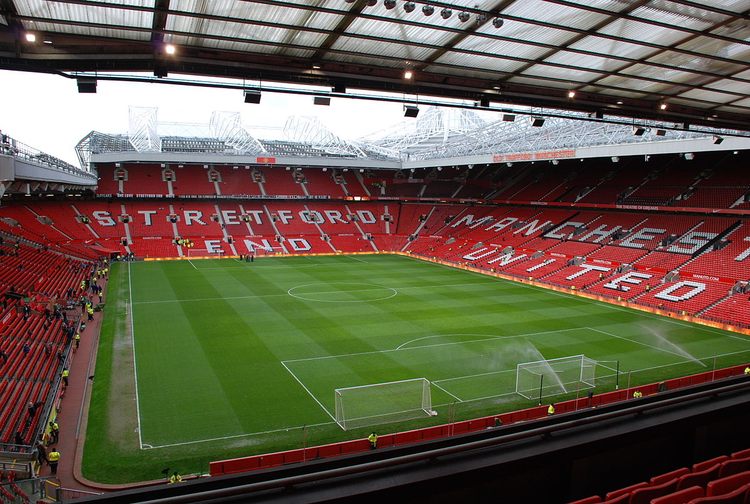
There are a huge variety of shapes and sizes when it comes to the stadiums in the premier league. Some grounds are very traditionally ‘English’ with a rectangular shape and stands steep and tight to the pitch, whereas other stadiums are modern bowl like structures more popular as multipurpose corporate venues. This means you never know what you are going to get when you watch a league game. The stadium has a huge influence on the gameplay in a match, this is why a fixture at home and away can be completely different.
As of the 2022-23 season football has been played in 58 different league stadiums, and following the Hillsborough disaster in 1989 all top league stadiums now must be all-seater. Stadiums have their very own charm and features. In our stadium guides you will find everything you need to know about football grounds in the Premier League and teams that play in them. Whether you are a fan of the club looking for some trivia, a travelling supporter planning a trip for an away game or simply visiting a city and fancy a tour then we have all the information you need.
Read about tickets and how to get them, hospitality, how to get there and parking, key stats, seating plans, history, hotels, future developments, facilities and private hire. Our photo galleries also show you what to expect to see both inside and outside the stadium.
About The League
The Premier League came into existence in 1992 as a rebranding of the then 104-year-old English Football First Division. England has the oldest professional football leagues in the world with the Premier League representing the top 20 of the 92 professional league clubs in the country.
The English Premiership is the richest football league in the world earning it’s 20 shareholders (i.e. the teams in the league) hundreds of millions in television and other types of revenue each year. Top clubs like Manchester United are worth close to £5 billion with no current club worth less than £100 million. The current television deal which runs until 2025 was worth around £4.8 billion when it was signed.
The league season runs from mid-August each year to mid-May the following year. The 20 teams play each other once at home and once away giving 38 league games in total. With Friday night games introduced for the 2016-17 season this now means clubs play games on all week days with Thursday’s also added in 2019-20. The standard kick off times are 3pm on a weekend or bank holiday and 7:45pm on a weekday, although in the modern game a significant proportion of games are now played at various times for TV scheduling.
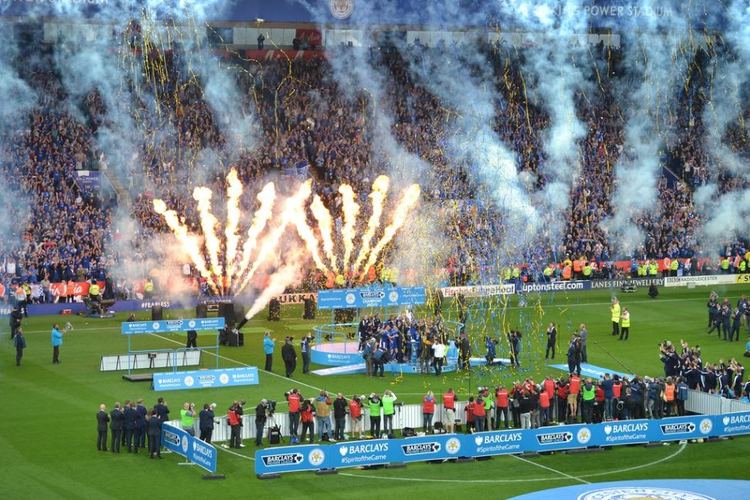
The top four clubs each year qualify for the UEFA Champions League with 5th place automatically qualifying for the Europa League. The bottom three clubs are relegated from the division replaced by the top two teams in the Championship and the winner of the Championship playoffs.
The Premier League current sponsors are Barclays who have been the main sponsors since 2001 (Barclaycard until 2004). Prior to this the league was sponsored by Carling from 1993 and in fact didn’t have a sponsor in its first year.
Manchester United are the record winners of the Premier League having won it 13 times since 1992, Man City are not far behind with 7 (and are likely to catch up), while Chelsea are third with 5 titles and Arsenal have won the Premier League 3 times. In the 2015/16 season Leicester City shocked the country by winning their first Premier League title after starting the season with odds of 5,000/1 to win.
Even Liverpool have managed to win the Premier League once, they eventually managed it in 2020, winning both the earliest (in terms of games, 7 remaining) and the latest (in terms of date, 25th June due to corona virus suspension). The league may feel tied up at the top, but this goes to show it is still one of the most exciting football leagues in the world.
Premier League History
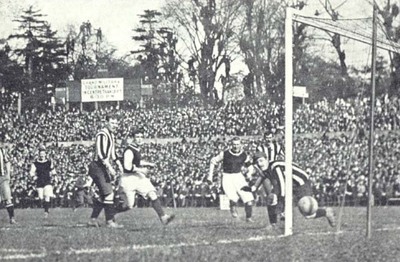
The original first division was founded in 1888 by the then director of Aston Villa, William McGregor, making it the oldest professional football league in the world. The original league had 12 teams, Aston Villa, Accrington, Blackburn Rovers, Bolton Wanderers, Burnley, Derby County, Notts County, Preston North End, Stoke, West Bromwich Albion and Wolverhampton Wanderers. No teams from London were included with the league predominantly a northern affair. Football was very much a working class game back then with the docks, mills, foundries, and other industries interlinked with the football teams that represented them. In 1892 the league was split into two divisions as other teams joined.
In 1895 automatic promotion and relegation was introduced and extended to two teams in 1898, by the turn of the 20th Century the league had expanded to 18 teams with clubs such as Manchester United and Newcastle United joining. The first London clubs joined in 1905 with Chelsea and Clapton Orient (later Leyton Orient) followed by Fulham in 1907 and Tottenham Hotspur in 1908, although it would take until 1931 for the league to be won by a London club, Arsenal.
The league was suspended for 4 years during the First World War and for a full 7 seasons during WWII. Following the Second World War top league teams began playing in Europe and by the 1980’s the English top division was producing some of the best football and most successful teams on the continent, with Liverpool for example winning 4 European Cups between 1977 and 1984. At home, however, stadiums were deteriorating and football was becoming associated with violence and hooliganism, even leading to the banning of English Clubs from European competition for five years in 1985 following the Heysel disaster.
By the late 1980’s the English first division had fallen behind the Serie A in Italy and La Liga in Spain in attendances and revenue. However, success of the England National team at the 1990 world cup coupled with enforced improvements to stadia following Hillsborough and increasing television revenue (£44 million over 4 years in 1988) saw a changing tide approaching.
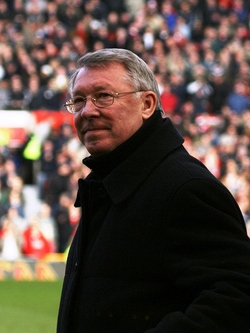
During the close season of 1991 the top flight teams in England agreed to the formation of a new division known as the Premier League. The league would be able to negotiate its own TV deals and sponsorship arrangements using the argument that this would enable England’s top clubs to compete across Europe.
In 1992 all of the first division clubs effectively resigned all at once from the Football League and enrolled in the new Premier League. The first ever competition was contested between 22 clubs, won by Manchester United with Aston Villa runners up. Brian Deane from Sheffield United scored the first ever Premier League goal. The league was reduced to 20 teams in 1995 on the request of FIFA but pressure to lower this to 18 teams has been resisted.
The ability of the league to negotiate its own terms saw revenues explode, and by 2013 all 20 league teams were listed in the top 40 largest teams in the world. All of this money has been excellent for the development of stadiums in the Premier League that can now boast some of the most iconic, attractive, an well-equipped football grounds in the world.
The current top goalscorer is Alan Shearer with 260 goals. The most successful manager is Sir Alex Ferguson with 13 league titles under his belt, and who is also the longest serving league manager; he was manager of Manchester United at the beginning of the league (started 1986) retiring in 2013. Gareth Barry has the highest appearance record with 653 and the current record transfer fee in is £100 Million (Jack Grealish from Aston Villa to Man City 2021) and transfer fee out is £105 million (Philippe Coutinho Liverpool to Barcelona in 2018). Erling Haaland holds the record for most goals in a 38 game season with 36 in 2022-23.
